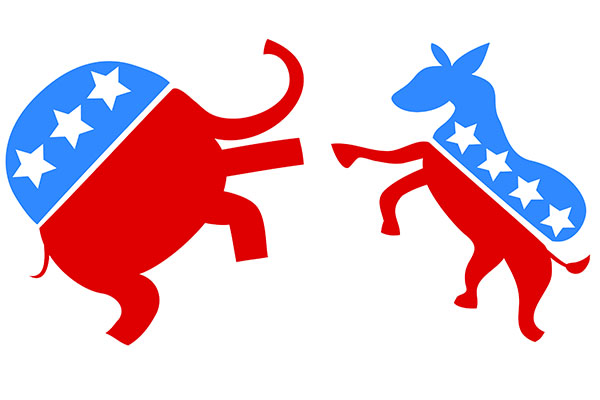 Awhile back I provided links to some good, thought provoking commentary by Christian philosophers. Now, some other excellent pieces I’ve read, by philosophers and not. I think Christian philosopher Dr. Kelly James Clark hits the nail on the head:
Awhile back I provided links to some good, thought provoking commentary by Christian philosophers. Now, some other excellent pieces I’ve read, by philosophers and not. I think Christian philosopher Dr. Kelly James Clark hits the nail on the head:
…many Christians mistakenly assume that two people worship the same God only if they have identical or nearly identical descriptions of God. This assumption, which may seem obviously true, is deeply flawed both philosophically and spiritually.
Two people can worship the same God with incomplete, incompatible and even false descriptions of God.
…Relating to a person requires only that one be acquainted with that person, either directly or indirectly (through a chain of testimony that traces back to someone who was directly acquainted with that person). This is a good thing because our descriptions of people are often mistaken and contradictory.
Back to God. Muslims and Christians worship the same God if one or both are either directly acquainted with God (perhaps through a religious experience) or if both are part of a chain of testimony that traces back to someone who was directly acquainted with God (say, Abraham). Worshipping the same God does not require either person to get their description of God just right (or even right at all).
So does author/blogger Benjamin Corey:
In ancient times there was a man named Abraham who is revered in three of the world’s great religions. Abraham, of course, is considered the father of the Jewish people as well as Arabs and then Muslims. Essentially, Abraham somewhat founded a religion that went into three different streams: Judaism, Christianity, and Islam. Here’s the important part: all three of these religions are Abrahamic religions, trying to worship Abraham’s God.
And this is where we can say all three religions do in fact worship the same God, as all three religions are pointing to, offering worship, and attempting to describe, the same object.
…Affirming the basic fact that Christianity, Judaism and Islam are three religions attempting to worship and describe the same God (Abraham’s God, whatever one calls him), doesn’t mean we’re saying all three religions are the same, equally valid, correct, or anything else. We’re simply pointing to the fact that we’re attempting to describe the same entity.
 About the controversy itself, rather than the interesting theological issues discussed in it, Dr. David Gushee argues that the situation at bottom political. Wheaton is not only evangelical, but also overwhelmingly politically conservative. And the problem is that
About the controversy itself, rather than the interesting theological issues discussed in it, Dr. David Gushee argues that the situation at bottom political. Wheaton is not only evangelical, but also overwhelmingly politically conservative. And the problem is that
A doctrinal statement cannot protect a school from accidentally hiring someone who will sometimes offend a 95% politically conservative constituency. Such troublesome faculty — I was once one of them — repeatedly force administrators to have to explain to trustees and donors that academic freedom protects professors who offer unwelcome political views, as long as they do not violate the school’s doctrinal statement.
… Recall that what first caught everyone’s attention at Wheaton was Dr. Hawkins’ decision to wear a hijab on campus in solidarity with Muslims. Sources at Wheaton tell me it was not the first time that she had irritated the Wheaton administration by taking public, politically uncomfortable positions. But in this political climate, I am sure that protests from key people in the Wheaton constituency went through the roof. So then, all of a sudden, there was a problem with the professor’s adherence to the doctrinal statement.
…So Wheaton is essentially saying this: Tenure will not protect you if you too visibly offend the conservative political views of our constituency. Whatever conservative politics looks like right now, that also is mandatory for faculty. The same is true in many other evangelical universities.
What we are seeing at Wheaton right now is that the things we say we believe on paper are actually just placeholders for a sociologically defined in-group. When someone says something that sounds out of step with what “We” should say, we scurry to find some reason why what was just said is a contradiction to what one MUST deduce from the words on the page.
[Provost Stan Jones, to another Wheaton prof] Larycia Hawkins also meant something similarly innocuous, but her theological comments are being taken up as an endorsement of Islam and a clear and emphatic statement that Islam and Christianity are approximately the same.
The administration, particularly Provost Stan Jones, insists that my Facebook post is a theological statement rather than an act of human solidarity emanating out of my faith commitment, that strikes me a drawing a line in the evangelical sand, and my body happens to be in the middle of that.
 And sounds, contrary to what I speculated before, like Dr. Jones is the chief inquisitor.
And sounds, contrary to what I speculated before, like Dr. Jones is the chief inquisitor.Jones will prosecute Hawkins at a hearing of nine tenured faculty members in the coming weeks. They will then submit a recommendation to Wheaton’s president Philip Ryken, who will submit a recommendation to the Board of Trustees, who will issue a final decision about her future at the college.
